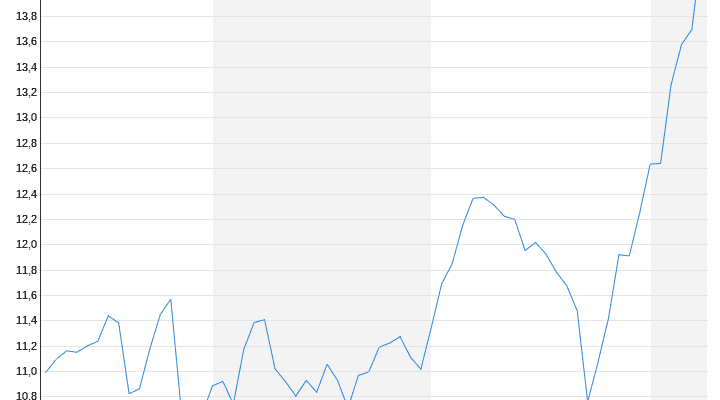Debate on rate hikes
Sewing: The ECB will have to follow suit
2/8/2022, 8:22 p.m
Deutsche Bank is worried about high inflation. The ECB cannot just watch the rate hikes by the US Federal Reserve. According to its boss Sewing, the German industry leader is now expecting an interest rate hike in the euro area before the end of this year. And he still worries.
From the point of view of Deutsche Bank boss Christian Sewing, the central banks have to brace themselves against the soaring inflation by raising interest rates. “Central banks around the world will have to take countermeasures,” said Sewing at the bank’s digital New Year’s reception. In the USA it is considered agreed that the Fed will raise interest rates for the first time in March. “Our economists expect at least three more steps by the end of the year. And the ECB will also have to follow suit,” said the head of Germany’s largest financial institution.
In view of the increased risk of inflation, the European Central Bank (ECB) backed off a bit last week from its refusal to turn around interest rates this year. After the Council meeting, ECB President Christine Lagarde did not repeat her earlier statement that an increase in 2022 was very unlikely. The ECB will now carefully evaluate the incoming data and then make a decision in March, she said. However, Lagarde left open whether the ECB will then switch to a tighter line.
“After the eurozone has lived de facto interest-free for more than a decade, I would call this a historic turning point,” Sewing said. The analysts of his house expected an interest rate step at the ECB for the fourth quarter. “Of course, this cannot mean shooting up, it has to be done in a balanced way because of the debt situation that we have in the European countries,” said Sewing. zero
The Deutsche Bank boss is worried about the high debts of companies, states and private individuals worldwide. As early as 2020, the mountain of debt worldwide was higher than ever at a total of 226 trillion US dollars. And in 2021 it went further up. “This debt burden is simply unsustainable and a constant potential source of fire for global financial markets,” he warned.
Sewing also commented on the controversial issue of common deposit insurance for savers in Europe. The Federal Association of German Banks (BdB) also made proposals in this regard, in order not to have mutual deposit insurance, but to have liquidity protection as a first step, he said. “I think it’s now about making the right compromises.” The prerequisite for a deeper capital market is the completion of the banking union.
Federal Finance Minister Christian Lindner was rather cautious about this at the event. “Personally, I believe that creating a common deposit insurance scheme in Europe is not advisable from a regulatory point of view, but that there is always a strong national component,” he said. Ultimately, the individual member countries are also responsible for their private banking sector. “Just as we can’t want sovereign debt mutualisation, for regulatory reasons, we can’t want full private sector risk mutualisation,” he said.
